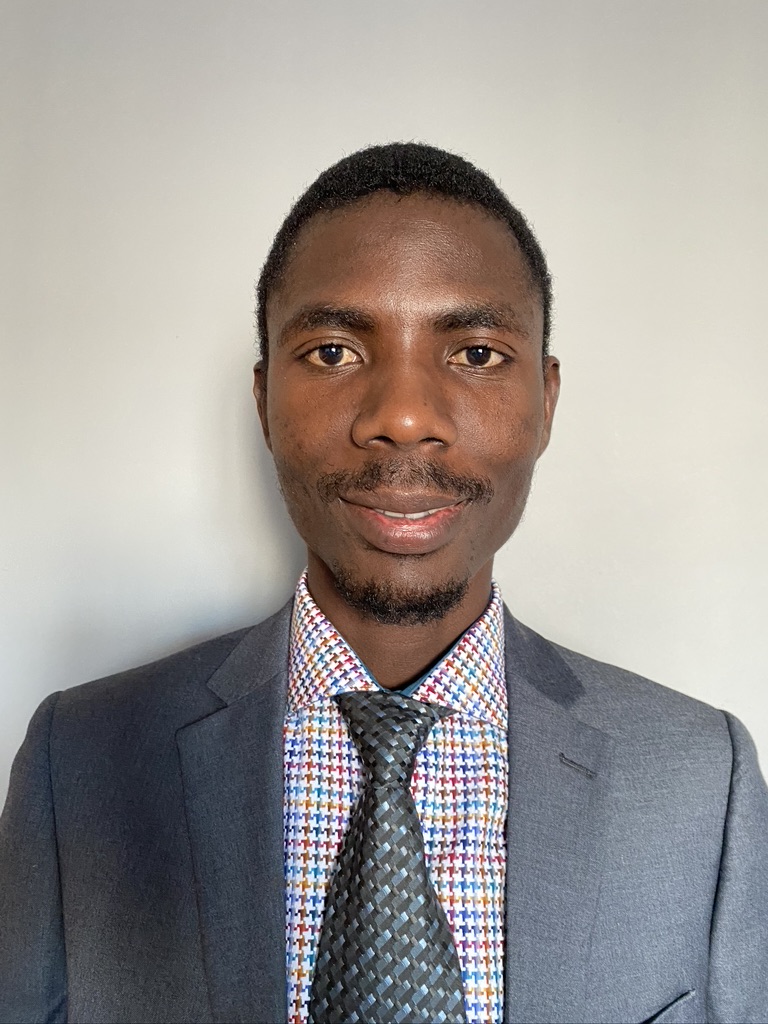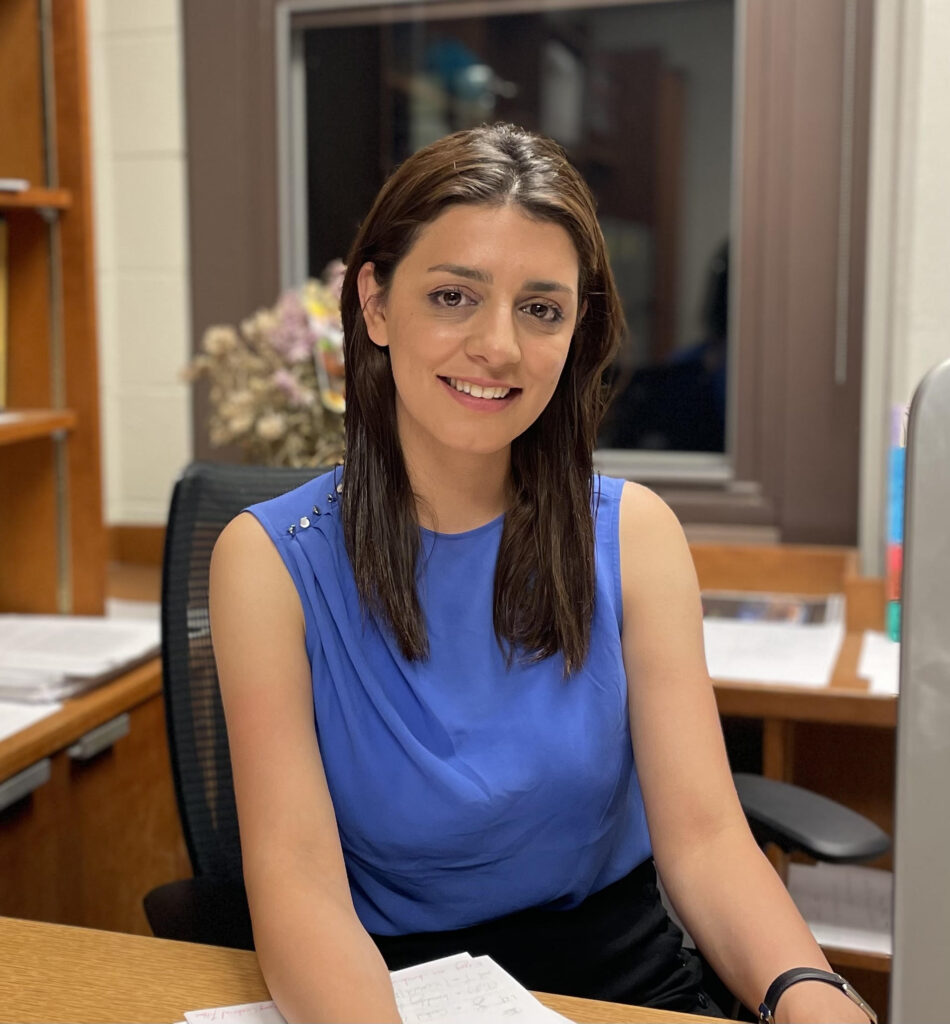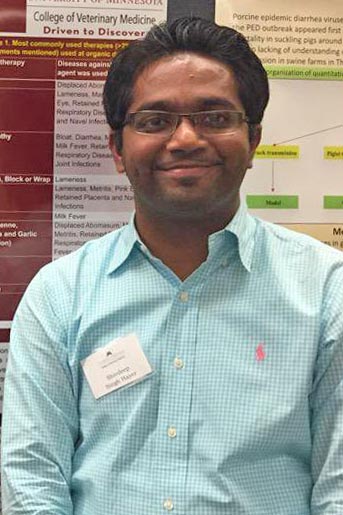The HQP Organizing Committee is led by five Highly Qualified Personnel (HQP) involved in OMNI-RÉUNIS research projects. The members are tasked with spearheading the OMNI-RÉUNIS HQP-led lecture series, appropriately titled “OMNI-RÉUNIS Super Spreader Seminar Series”. To find out more and to register for upcoming lectures, please visit OMNI-RÉUNIS Super Spreader Seminar Series page.
Membership
Term: 2023-2024

Joseph Baafi (Lead)
Memorial University of Newfoundland and Labrador
Joseph Baafi received his M.Sc. in Mathematical Sciences from the African Institute for Mathematical Sciences and M.Phil. in Applied Mathematics from Kwame Nkrumah University of Science and Technology in Ghana. He is currently a PhD student in the theoretical biology lab at the Memorial University of Newfoundland. His research interests are in epidemiology and population dynamics with climate dependence.

Dr. Suzan Farhang Sardroodi
University of Toronto
Dr. Suzan Farhang-Sardroodi is a research associate in the Department of Pharmacology and Toxicology at the University of Toronto. She received her Ph.D. in Physics from the University of Zanjan, Iran (2018), with a specialization in the evolutionary dynamics of complex systems. Presently, her research interests span the disciplines of quantitative immunology and clinical pharmacology. Over the last six years, Dr. Farhang-Sardroodi has been deeply invested in enriching her proficiency in computational modelling, within the spheres of mathematical medicine and biology. Her significant role during the COVID-19 pandemic involved spearheading various research initiatives in collaboration with the Center for Disease Modelling (CDM) and the National Research Council Canada (NRC) in Toronto. These initiatives, which have culminated in noteworthy publications, delved into the intricacies of the human immune response after infection or vaccination, underscoring her valuable contribution to medical research. Her professional network extends through her continued collaboration with York University and her active participation in several esteemed organizations. She is a member of the Society of Mathematical Biology (SMB), the Canadian Applied and Industrial Mathematics Society (CAIMS/SCMI), and the Cancer Research Network (RRCancer) in Québec, reflecting her deep commitment to the advancement of mathematical biology and its practical applications in the healthcare sector.

Dr. Shivdeep Singh Hayer
University of Guelph
Dr. Shivdeep Hayer is a veterinary epidemiologist with interests in antimicrobial resistance and one health. He did his DVM and Masters in Veterinary Science from GADVASU, Punjab (India) with a focus on large animal medicine. After pursuing a fellowship in public health microbiology in India, he joined University of Minnesota in 2015 to pursue a PhD in Veterinary Epidemiology with an emphasis on antimicrobial resistance in swine population in USA and Foot and Mouth Disease virus transmission. He worked as a post-doc at University of Nebraska for two years before immigrating to Canada, where he is currently working as a post-doc at University of Guelph. His current research focusses on transmission of antimicrobial resistance genes between and within different animal production types.

Dr. Pei Yuan (Former Lead)
York University
Dr. Pei Yuan is a postdoc in the Department of Mathematics and Statistics at York University, Canadian Centre for Disease Modelling and One Health Modelling Network for Emerging Infections (OMNI-RÉUNIS). She obtained her PhD in applied mathematics from York University in 2021. Her research interests include dynamical systems, ordinary differential equations, bifurcation theory and applications, modelling and analysis in mathematical ecology and epidemiology. She works in a broad field of application including modelling and control of infectious diseases, as well as tea pest control, climate change and mosquito-borne diseases, data-driven statistical modeling and analysis. During the pandemic, she has been working with Public Health Agency of Canada and Toronto Public Health on data-driven predictive modeling and building the dashboard (internal) for controlling COVID-19 in Toronto.

Sanaz Gholizadeh
York University
Sanaz Gholizadeh received her M.Sc. in Complex System Physics from the Institute for Advanced Studies in Basic Sciences in Iran. She is currently a Ph.D. student in the Department of Mathematics and Statistics at York University, Centre for Disease Modelling, and One Health Modelling Network for Emerging Infections (OMNI-RÉUNIS). Her research focuses on developing mathematical models that delve into the intricacies of human behavior and social interactions, with a strong emphasis on their impact on public health. Sanaz’s interdisciplinary approach combines elements from dynamical systems, network science, and hypergraphs, all geared toward advancing our comprehension of health and epidemiology. Her work sits at the crossroads of mathematics and public health, shedding light on the role of human behavior in shaping the course of infectious diseases and informing strategies for disease prevention and control.
